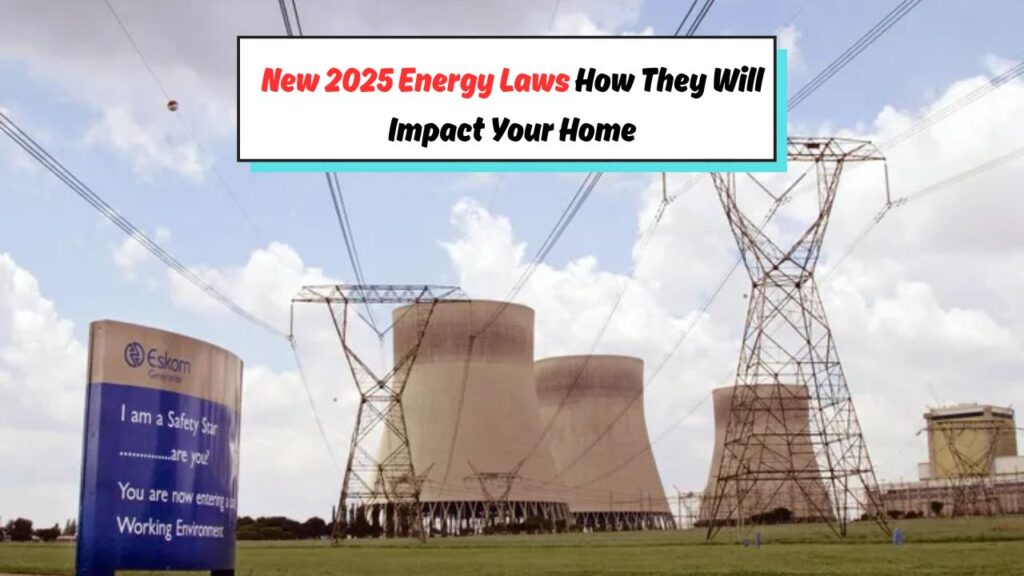South Africa’s 2025 Electricity Laws: The upcoming changes in electricity regulations are set to reshape the energy landscape for both households and businesses across South Africa. As the nation grapples with ongoing power challenges, these new laws aim to address critical issues such as energy efficiency, renewable energy integration, and infrastructure development. Whether you’re a homeowner concerned about rising electricity bills or a business owner looking to optimize energy use, understanding these legislative updates is crucial. The 2025 electricity laws promise to bring significant changes that could influence everything from energy pricing to the adoption of sustainable technologies.

Key Changes in South Africa’s 2025 Electricity Regulations
The 2025 electricity regulations in South Africa bring a host of significant changes aimed at modernizing the country’s energy framework. One of the most anticipated updates is the increased push towards renewable energy sources. The government has set ambitious targets to boost the contribution of solar, wind, and other renewable energy forms to the national grid. This move not only aligns with global sustainability trends but also aims to reduce the nation’s reliance on coal, which has been a major source of electricity in South Africa.
Another critical aspect of the new laws is the focus on energy efficiency. Both households and businesses will be encouraged to adopt energy-saving technologies and practices. Incentives, such as tax rebates and subsidies, are expected to be introduced to motivate the installation of energy-efficient appliances and systems. Moreover, the regulations will also address the modernization of the electricity grid to ensure it can handle the integration of decentralized energy sources, such as residential solar panels.
Impacts on Households: What Homeowners Should Prepare For
For households, the 2025 electricity laws in South Africa signify a period of transition towards more sustainable living. Homeowners will need to adapt to new standards that prioritize energy efficiency. This could involve investing in energy-efficient appliances, LED lighting, and home insulation improvements. Additionally, the introduction of smart metering systems will empower consumers to monitor and manage their electricity usage more effectively, potentially leading to cost savings on monthly bills.
The laws also encourage the adoption of small-scale renewable energy systems, such as rooftop solar panels, by providing financial incentives. Households that generate excess electricity may have the opportunity to sell it back to the grid, creating an additional income stream. However, homeowners should be prepared for initial investment costs and consider the long-term benefits of reduced energy expenses and a smaller carbon footprint.
Business Adaptation: Navigating New Energy Policies
Businesses in South Africa will face both challenges and opportunities with the implementation of the 2025 electricity laws. The push for renewable energy and efficiency aligns with global corporate sustainability goals, offering businesses the chance to enhance their green credentials. Companies will need to assess their current energy consumption and explore ways to reduce their carbon footprint.
Investing in renewable energy sources, such as solar panels or wind turbines, could not only reduce operating costs but also position businesses as leaders in sustainability. The regulations may also mandate energy audits and the implementation of efficiency measures, which could initially increase operational costs but lead to long-term savings. Businesses that proactively adapt to these changes could gain a competitive edge, appealing to environmentally conscious consumers and investors.
Future Prospects: South Africa’s Energy Landscape Post-2025
Looking beyond 2025, South Africa’s energy landscape is poised for transformation. The successful implementation of these laws could pave the way for a more resilient and sustainable energy system. As the country reduces its reliance on coal and boosts renewable energy production, the long-term prospects include a cleaner environment and improved energy security.
Moreover, the advancements in technology and infrastructure could foster innovation in the energy sector, creating new business opportunities and jobs. Educational and training programs will likely evolve to support the growing demand for skilled professionals in renewable energy and energy efficiency fields. While the transition may present challenges, it also offers the potential for South Africa to position itself as a leader in sustainable energy practices globally.




